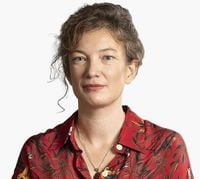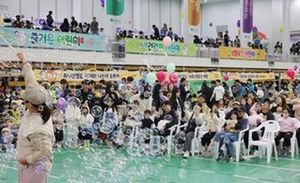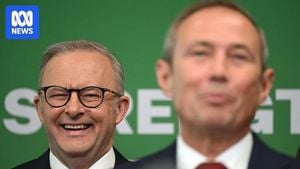On Sunday, May 4, 2025, the action group 'Zaankanters voor Palestina' organized an 'alternative, spontaneous commemoration' at the Hannie Schaft monument in Zaandam. This event was aligned with the 'alternative national commemoration' taking place in The Hague, which had been registered with the municipality at the beginning of April. The organizers aimed to create a space where individuals could express their current pain and sorrow while showing solidarity with victims of violence today.
Mark van der Hout from Zaankanters voor Palestina stated, "Because Zaankanters shouldn’t have to travel all the way to the capital for such a commemoration, we decided to hold an alternative remembrance in the Zaan region." This initiative was a response to the traditional Dodenherdenking, where high-ranking officials gather at Dam Square while failing to take action against what many see as genocide against Palestinians.
The alternative commemoration in Zaandam allowed for flags from Palestine and Congo to be carried, unlike the event in The Hague, which discouraged such displays. Van der Hout emphasized that the Zaandam remembrance would focus on the ongoing genocide in Palestine and remember the victims of state violence both past and present. He remarked, "A commemoration in 2025 should address victims from both then and now, including the communist and anarchist resistance fighters, persecuted Jews, Roma, and Sinti during World War II, the independence struggle in Indonesia, and current victims of genocide in Palestine and Congo, as well as the war in Ukraine."
During the commemoration, attendees were invited to reflect on the many innocent lives lost due to the actions or inactions of the Dutch state in wars, genocides, or oppression. Van der Hout expressed that the Netherlands often finds itself on the wrong side of history, particularly regarding the situation in Gaza, stating, "The Dutch state is complicit in the deaths of these people."
The alternative commemoration in Zaandam was set to take place at 7:30 PM at the Hannie Schaft monument, with two minutes of silence scheduled for 8:00 PM. In previous years, flowers had also been laid at this monument on May 4, further emphasizing its significance as a site of remembrance.
Meanwhile, in a separate discussion on the radio show 'Dit is de Dag,' Rabbi Yanki Jacobs and anthropologist Danielle Braun debated the significance of the National Dodenherdenking. Jacobs argued that May 4 should focus solely on World War II, while Braun advocated for acknowledging contemporary violence, particularly in Gaza, in which the Netherlands is indirectly involved. Jacobs dismissed the idea of including Gaza, claiming that it was a deliberate choice to provoke and polarize.
Floor Rusman, the author of the article, noted that Jacobs' perspective reflected a common tendency to view differing opinions as provocations rather than legitimate expressions of concern. The Centraal Joods Overleg, represented by Chairman Chanan Hertzberger, labeled the alternative commemoration as a provocation against what unites the Netherlands and its collective history. Hertzberger cautioned against politicizing remembrance, asserting that this was the intent of the alternative organizers.
Furthermore, Theodor Holman, in a recent column, denied allegations of genocide against Palestinians, framing such claims as a manipulation of language designed to provoke. Holman emphasized that the actions taken by Israel are not based on a genocidal intent but rather a complex conflict situation. His assertions highlight a broader debate about the definitions and implications of genocide, suggesting that differing interpretations should not be dismissed as mere provocations.
On the same day, Amsterdam Mayor Femke Halsema delivered a speech at the Museumplein that implicitly referenced the ongoing conflicts in Gaza and Ukraine. While honoring the victims of World War II, Halsema also addressed the contemporary violence against civilians and society's tendency to turn a blind eye. She quoted Franklin D. Roosevelt's message from 1945, emphasizing the need to end the cycle of violence and oppression, stating, "More than an end to war, we want an end to the beginning of all wars."
Halsema did not name specific countries but her comments resonated with the current situation in Gaza, where thousands of civilian casualties have been reported since the conflict escalated in October 2023. She remarked, "Mothers and children die from bombings, leaving others permanently injured and traumatized, while people suffer from hunger and cities are reduced to ruins. And we are just watching."
Halsema's speech also honored the 102,000 Dutch Jews, Roma, Sinti, and homosexuals who were tortured and murdered during the Holocaust. She commemorated resistance fighters like Irawan Soejono, who fought against the Nazis, and Holocaust survivor Annetje Fels-Kupferschmidt, underscoring the universal nature of freedom and justice.
In conclusion, the events of May 4, 2025, reflected a complex interplay of historical remembrance and contemporary political commentary. The alternative commemoration in Zaandam and the speeches delivered by public figures illustrate the ongoing struggle to address past atrocities while confronting present injustices. As society grapples with these issues, the need for meaningful dialogue and reflection remains critical in shaping a more just future.




